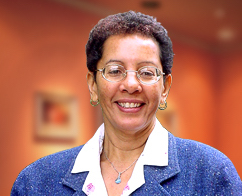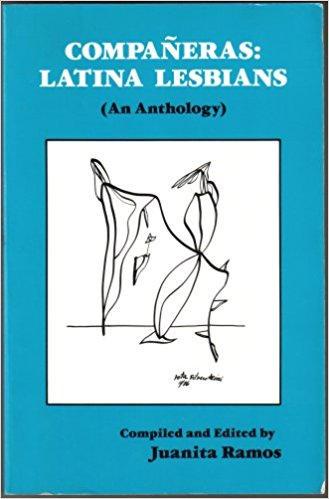For Women’s History Month, GO is celebrating LGBTQ women we wish we could have learned about in high school history class.
Puerto Rican Ph.D. Juanita Diaz-Cotto is the co-founder of the Latina Lesbian History Project. It was through the LLHP that she came to edit “Companeras: Latina Lesbians (An Anthology),” which she published under a pseudonym (Juanita Ramos) in 1987. The collection featured oral histories, essays, poems, short stories and artwork by and about Latina lesbians in both Spanish and English, featuring the work of “47 women born in 10 different countries address issues such as coming out, relationships with families and friends, political organizing and community building.” The book was praised for its giving visibility to an underserved population, and for uplifting the voices of queer Latinas who often felt silenced in their LGBTQ and Chicana communities. Contributors to the book included Norma Alarcón, Ana Castillo and Cherrié Moraga.

Now the Director of the Latin American and Caribbean Area Studies Program (LACAS) and Professor of Sociology, Women’s Studies, and LACAS at SUNY Binghamton, Diaz-Cotto published another important work, “Gender, Ethnicity, and the State Latina and Latino Prison Politics” as part of the university’s series in New Directions in Crime and Justice Studies. In the classroom, she teaches students about “revolutionary movements, state formation, political economy, peasants, the military, feminist and lesbian-feminist movements, and the African Diaspora.” Course titles of hers include “Women of Color in the U.S., “Women and the U.S. Criminal Justice System,” and “Women of Color and Oral History Methods.” She also edited a Latina-themed issue of the lesbian feminist publication “Sinister Wisdom” and published “Chicana Lives and Criminal Justice: Voices from El Barrio” in 2006.

Diaz-Cotto sometimes found it hard to reconcile her activism and her academia, telling Guernica in 2013: “Oh my god, I almost didn’t finish my Ph.D. because I felt such a conflict between the two. Part of it was laziness and the other part was knowing all these people are being oppressed. Then I realized the leaders who I respected were professors and they were educated. At some point I said, ‘Mao was educated. Fidel Castro was educated.’ All the people I look up to, Marx and Engels, they were educated. And on top of it, they were European! So yes, I have that conflict. I have students who have that conflict now. They’re activists and they’ve been facing the conflict of whether they should quit school to become activists. I explain to them: No, because as an academic you can do everything. You have so much freaking free time to publish and to write and to organize the community. You can help document the community. You have so much privilege. You cannot quit academia. You can do it all.”

What Do You Think?